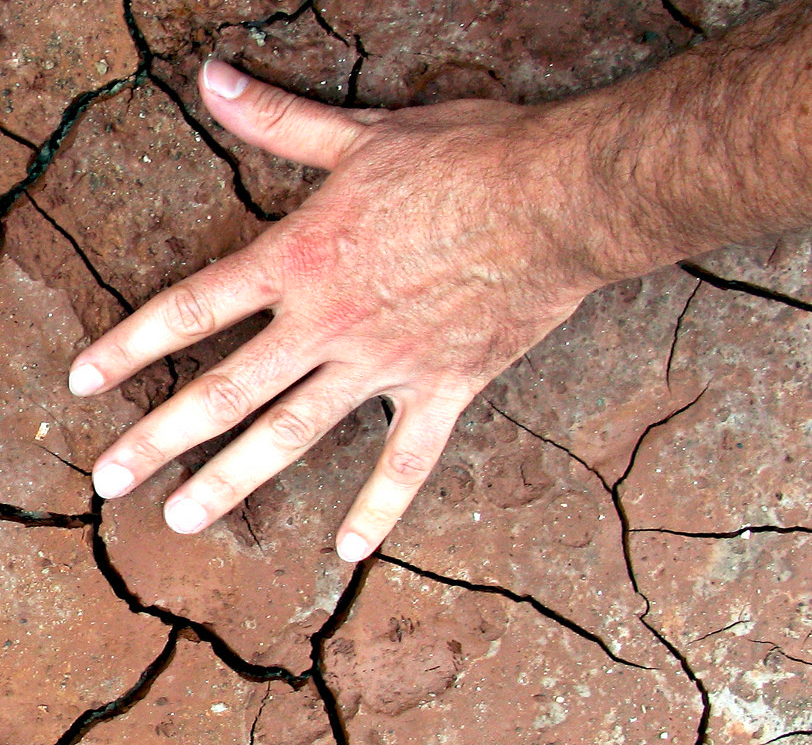Torah Sparks
Among the many pieces that make up the mosaic of this Torah reading, perhaps the most well-known and discussed in the episode of Moses hitting a rock in order to bring out water for the parched and complaining Israelites. Moses, with Aaron at his side, hits the rock in a fit of fury and, although the waters gush forth to relieve the Israelite’s suffering, Moses and Aaron are castigated by God for failing to sanctify God’s Name in the community and they are condemned to die in the wilderness, without entering the Promised Land.
What caused God to punish Moses (and Aaron) so severely? What was their precise failing? Much discussion has been devoted to this puzzle over the generations. Elsewhere I have argued that the sin is not so much that Moses struck the rock instead of speaking to it. It is not that he did not speak. Rather, it is what he did not speak that constitutes his – and Aaron’s – failing.
The crisis caused by the lack of water, to which Moses was supposed to respond and, thereby, glorify God’s Presence, follows immediately after the death of Miriam, Moses’ and Aaron’s sister. The Sages made this connection and explained that there was a special water source – Miriam’s Well – that supplied the Israelites with all their needs for as long as Miriam lived. But, with her death, the well died, too.
I think that we can see that the proper response for Moses, after Miriam’s death, was to pause and eulogize this courageous and visionary leader who was, of course, also his sister. But the Torah says not a word about the mourning for Miriam after her death. This is in stark contrast to the response of the people after Aaron’s death (also in this Torah portion) and Moses’ later demise.
Why did the people not mourn for Miriam? We may imagine that the lack of water caused a panic among the people, overshadowing their concern for giving Miriam her proper recognition. But this is not a sufficient excuse for Moses and Aaron. So I have argued that what God was commanding Moses to do was to “speak at the rock,” to speak about the miracle of the water source that flowed from this rock thanks to Miriam. To recall to the people the blessing that they had enjoyed thanks to her. Had Moses done so, the waters would have resumed flowing in Miriam’s honor. But he did not.
A further hint that this may be the issue is supplied by the detail of the staff that Moses was commanded to take with him to the rock. Many have argued that Moses was led astray into hitting the rock because he could not imagine why else he was told by God to take hold of it. But, as one of the excellent modern commentators (Richard Elliot Freedman) has pointed out, the staff that Moses was told to take with him was not his own staff, but the staff that was “before the Eternal.” (Numbers 20:9) This was the staff that we read about last week. It was Aaron’s staff! It had been placed “before the Eternal” as a memorial because it was the very staff that had miraculously transformed from dead wood into a living tree of blossoms and almonds!
That staff had been a miraculous symbol of the status of Aaron. So God commanded Moses to take it and speak about Miriam before the object that had symbolized her status, the rock. Just as Aaron’s staff had come to life and brought forth fruit, so would the rock come to life and bring forth water in Miriam’s honor. This was the plan. But Moses and Aaron were not able to bring it about (and we could discuss why that happened another time). For whatever reason, they failed their sister’s memory and failed to sanctify God’s Good Name. May we strive to learn from the mistakes and failings of these two human beings.
Shabbat Shalom
Rabbi David Greenstein
Image by Luke Peterson Photography  used with permission via Creative Commons: Attribution License
used with permission via Creative Commons: Attribution License
- Toby Stein: In Memoriam - Thu, Feb 8, 2024
- Faithfulness and Hope: Parashat Sh’lach - Thu, Jun 23, 2022
- Past Their Prime: Parashat B’ha`a lot’kha - Thu, Jun 16, 2022

